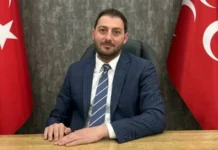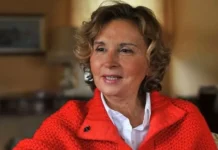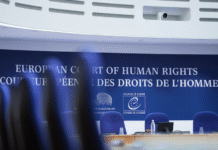
The outgoing Turkish ambassador in South Africa has openly admitted that the harassment of members of Gulen movement who seek refuge in African nation from the government crackdown on critics back at home will continue.
“We are after them and we will be until the end. We know where they all are”, Kaan Esener, Turkish ambassador in Pretoria said in reporter remarks by Daily Sabah, a newspaper controlled by Turkish President Recep Tayyip Erdogan.
“They should not feel too comfortable here. The Turkish state will continue to follow them closely and it will be not possible for them to hide in South Africa from now on”, he added.
Turkish government’s using diplomatic missions to target, harass and profile critics and dissidents who had to move abroad to escape the witch-hunt persecution at home has drawn the ire of many countries, especially in Europe, where officials warned Ankara about not to interfere into domestic affairs.
In December, Turkish government had to recall an attaché Yusuf Acar from embassy in The Hague after Dutch government prepared to declare him as persona non grata over Turkish diplomat’s profiling and intelligence gathering activities targeting the people affiliated with the Gülen movement in Netherlands were exposed.
Turkish ambassador Esener was also recalled to the capital last week according to the Official Gazette publication and replaced by ambassador Elif Çomoğlu Ülgen who will now represent Turkish interests in Pretoria.
Esener drew criticisms from South African media outlets that accused him of interfering into country’s domestic affairs, harassing critics and dissidents in violation of the host country’s laws and regulations.
Turkey has jailed 191 journalists on trumped up charges of terror and coup plotting according to Stockholm Center for Freedom (SCF), rights advocacy and monitoring group, breaking the world record as the worst jailer of journalists. Ankara also seeks to arrest an additional 92 journalists who either fled country or remain at large in Turkey.
Over 40,000 people were arrested in Turkey on coup and terror allegations and they all remain in pre-trial detention without a trial and conviction. The government dismissed nearly 140,000 people from state institutions in the aftermath of the aborted coup on July 15, 2016.
Turkish government accused Islamic scholar Fethullah Gülen of staging the failed coup but has not produced any evidence linking the cleric to the attempt. Gülen has strongly denied any involvement with the attempt and called for international independent inquiry. Turkey did not respond to Gülen’s offer, issued a media gag order ordering media outlets from reporting on coup investigation, and thwarted Parliamentary commission to summon key people for a hearing and testimony including Erdogan, the prime target of the coup, army and intelligence chiefs, as well as officers who are accused of killing civilians on the night of the bloody attempt.
The EU Intelligence Analysis Centre (IntCen) report said in August that it is unlikely Gülen played a role in the attempt.
Turkish president called the coup attempt “a gift from God” and immediately launched a widespread arrest of judges, prosecutors, teachers, doctors, union workers, activists, journalists and even housewives on dubious charges of involvement with the coup and terror.
Many believe Erdogan orchestrated the coup himself to set up his critics and opponents for a wide-scale persecution.














